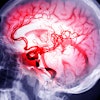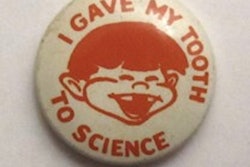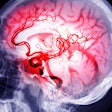
Dementia and mild cognitive impairment (MCI) may be linked to periodontal disease, specifically the type of gum damage that results in tooth loss, according to a study published online July 29 in Neurology.
Approximately 19% of participants who had varying degrees of gum disease and were followed for 20 years developed dementia, researchers found.
"Periodontal disease was modestly associated with incident MCI and dementia in a community-based cohort," wrote the group, led by Ryan Demmer, PhD, from the division of epidemiology and community health at the University of Minnesota School of Public Health.
Good gums, good mind?
These findings appear to bolster existing support for the association between oral health and overall health. Previous studies have shown that missing teeth may be a risk factor for developing dementia and that the more teeth older adults were missing, the more likely they were to develop the disease. Other studies have shown that poor oral hygiene is associated with pneumonia in seniors, specifically those diagnosed with dementia, while brains infected with periodontal disease bacteria have shown signs of Alzheimer's disease, the most common type of dementia. Dementia and MCI outcomes were assessed following a baseline periodontal examination to further explore these connections.
Approximately 8,300 people with an average age of 63 who were not diagnosed with dementia were enrolled in the study, which was funded by the U.S. National Heart, Lung, and Blood Institute, part of the National Institutes of Health. The participants were part of the community-based, longitudinal Atherosclerosis Risk in Communities (ARIC) study, which included predominantly Black or white participants ages 45 to 64 from Forsyth County, NC; Jackson, MS; the suburbs of Minneapolis; and Washington County, MD. The study participants were followed from 1996 through 2016, according to the authors.
The participants underwent complete periodontal exams that included measuring gum probing depth, bleeding, and recession. They were divided into groups based on the severity and extent of their gum disease and the number of lost teeth, including those with implants. The initial assessment showed about 22% had no gum disease and 12% had mild gum disease. Approximately 19% had some or severe tooth loss, 20% had no teeth, and the remaining had severe gum inflammation, disease in their molars, and severe gum disease, the researchers found.
2 decades later
At the end of the study 20 years later, 4,559 people were assessed. Approximately 1,600 of the participants, or about 19% of the 8,300 who were involved from the beginning, developed dementia. This was the equivalent of 11.8 cases per every 1,000 person-years.
Among those with healthy gums and all their teeth, 14% developed dementia, compared with 23% of those with no teeth. In addition, approximately 18% of those with mild gum disease and 22% with severe gum disease developed dementia, Demmer and colleagues found.
The study had limitations, such as the primary theories linking periodontal disease to dementia centrally involving adverse oral microbial exposures. No direct assessments of the patients' oral microbiota were available to test more refined hypotheses, they noted.
Severe periodontitis and tooth loss appear to be associated with a modestly enhanced dementia risk, so more studies should be completed to better understand the link.
"Future studies are justified to further characterize the potential role of oral microbiota in explaining this relationship and the potential for anti-infective periodontal interventions to prevent cognitive decline," the authors wrote.




















